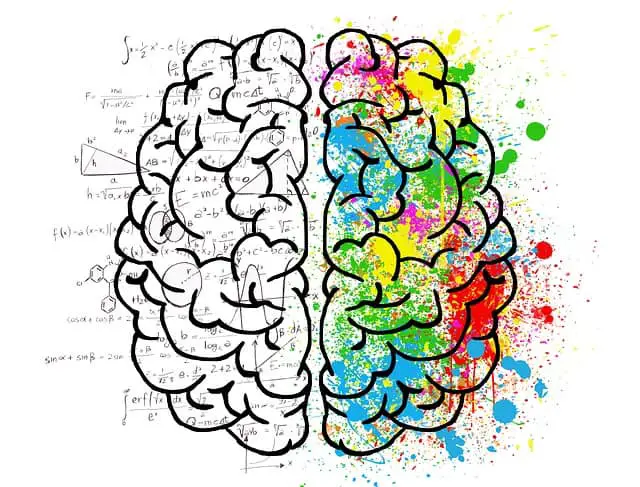Sleep is one of the most important aspects of human lives. But we are yet to fully understand the science of sleep. Even after years of research, we are still looking for answers as to why humans need it and all the benefits it confers on our health and well being.
But researchers have made a lot of progress. Every year, we learn a few new things that help us sleep better and get a deeper understanding of this whole shut-eye thing that keeps us alive.
In 2017, the revelations have been more than a few. Here are the five most notable ones. They include new findings as well as reinforcements of what sleep and medical researchers have always known about the importance of sleep.
1. Good Sleep is Essential To Forming and Retaining Memories

Previous research has established a link between sleep quality and the brain’s ability to form and retain new memories. It’s why students preparing for an exam are advised against burning the midnight candle on the night before the big day.
Now we can say for sure that sleep quality directly affects the brain’s memory capabilities. In a 4-year research, scientists studied changes in almost 7,000 synapses in the brains of mice.
Synapses are junctions between nerve cells in the brain. They allow the movement of impulses responsible for basic brain function such as memory, emotions and response to stimuli such as heat.
When you are awake, synapses in your brain stay active, continuously growing in size and strength. This helps with memory and learning.
But they can’t maintain this growth indefinitely. They need ‘resting’ moments where they shrink back before resuming growth. During sleep is when this shrinkage occurs. The synapses can then reactivate again in a few hours with renewed vigor.
Without this ‘resting’ period, you could lose any memories you acquired during the day.
A related study found that the protein Homer1a plays an important role in the synapse shrinking process. Certain foods and drinks such as coffee can interfere with this protein’s function. So avoid that cuppa when going to bed.
2. Poor Sleep Contributes to Mental Health Problems
Previous studies have also shown a link between sleep and mental health. Poor sleep, research shows, can aggravate or even cause mental health problems.
A new study reinforces these findings.
Researchers were treating participants for insomnia when they discovered that the treatment also helped improve mental health.
Basically, participants who ‘learnt’ to sleep better experienced fewer mental health problems such as depression, paranoia, hallucinations and anxiety.
On the other hand, poor sleep especially one caused by insomnia is a major contributing factor in the development and worsening of metal health symptoms.
3. Restless Sleep Might Be an Evolutionary Adaptation
Poor sleep habits that have become endemic in the modern society are often blamed on things like smartphones and electric lighting.
But there may be more to the story.
New research suggests that fitful sleep could be a survival mechanism baked into our system by evolution.
An observation of a modern-day hunters and gatherers tribe in Africa showed that sleep times differed greatly among different members of the tribe.
Researchers found that in a period of three weeks there were only 18 minutes when all tribe members were asleep. During most hours of the night, there was at least one member of the tribe awake and standing guard. People would wake up and sleep at all hours of the night.
This is most likely similar to how ancient humans lived, necessitated by persistent threats especially at night. These sleep habits could have carried over to modern man.
So if you find yourself waking up at odd hours of the night, it could be partly because of evolution.
Interestingly however, the hunter-gather tribe lacks sleep problems such as insomnia which are common in today’s society. So smartphones, climate control systems and other wonders of modern technology could still be playing a role in poor sleep quality.
4. Women are Better Sleepers Than Men

Researchers in Perth, Australia, have found that women are generally better sleepers compared to men.
While women take longer to fall asleep (five minutes longer on average), they sleep longer and wake up fewer times at night.
The researchers theorized that the differences could be linked to glucose, which provides a bulk of the brain’s energy. Women's brains despite being slightly smaller have higher energy, and hence glucose demand.
A Great Night's Sleep Starts with A High-Quality Mattress
OK, so this isn't exactly a revelation 😉
There are some things out of our control like genetics and gender that affect sleep quality. There are others that we can change or improve such as mattress quality.
But lot's research has linked back pain, insomnia and restless sleep to the kind of mattress you sleep on.
The most important thing you can do for a good nights sleep is to invest in a quality mattress.
The National Sleep Foundation recommends that you should, “always make sure the mattress you purchase is comfortable and supportive.”
Check out our online mattress reviews and comparisons to find the one that is best for your needs.
Affiliate Disclosure
Affiliate Disclosure: I may earn a small commission (at no cost to you) if you purchase a mattress after clicking a referral link or using a coupon code on this site. That said, all content and opinions on this site are my own and are NOT affected by these payments.
This site participates in the Amazon Services LLC Associates Program, an affiliate advertising program designed to provide a means for sites to earn advertising fees by advertising and linking to Amazon.com.
*Amazon and the Amazon logo are trademarks of Amazon.com, Inc, or its affiliates.

